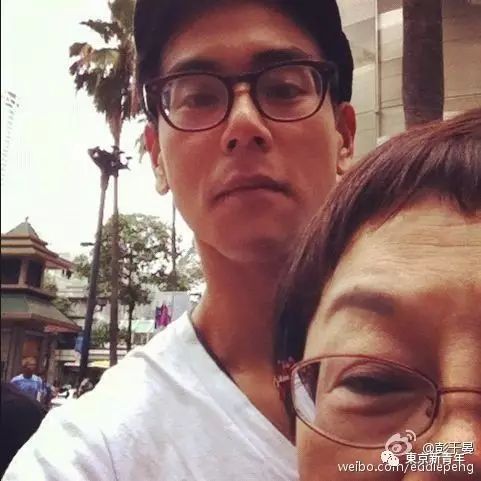When I first came to China, I didn't realize how much English there is. I was amazed. I would never guess that there's this much English here. The problem is there's a lot of bad English. So to have somebody like you, with grammar as good as you're using and whatnot, that's fantastic. I would imagine that she'll be a fantastic teacher and shape the lives of a lot of people that will grow up and do fantastic things. So you're somebody that's very, very important.
I have to be responsible because I teach a lot of people.
My goodness! Like I said, I’ve worked with so many teachers and so many different schools and things like that. It's not that way out there. There's a lot of English being taught, but not all of it is good.
I came here like May of 2018 and I was staying in an apartment. And when you go in the elevator and the elevator doors close on the inside, there would be a sticker that would say this “trust on ban in”. Any idea what that means?
No, I have no idea. What is that?
It means don't lean on the doors. Now if you can imagine how you would say that in Chinese, because if you lean on the doors and the doors open up, you go flying out of the elevator, right? So if you can imagine how you would say that in Chinese, and then take those Chinese words and then see how you would translate them into English, that's probably what somebody did. And they came up with “trust on ban in”, which doesn't mean anything in English.
There are some mistakes, grammar mistakes, or wrongly used words in public. But I’ve noticed that it has changed a lot. It has turned better.
You just reminded me of something else. So “this and that” are used for singular things, “these and those” for plural things, which you did that perfectly—these years. But a lot of students get those mixed up. Obviously, they mix up “he and she”, could be talking about one particular person. And tense is pretty difficult for a lot of students because they grew up with a language where the verb doesn't change. You attach a time indication and a place indication and then say what happened. But in English, our verbs change.
Yeah, that's one difficult part for Chinese students. He she, we all say TA.
And then there's the whole thing with tones. And I get the feeling that sometimes when a student, especially somebody that's not as high level as you, but somebody that's relatively new to English maybe, and even an intermediate student, if they learn a word with a particular tone, maybe election or something if they learn it with a particular tone. And that's the way that they learn it if somebody says it in a different tone election, it's like, what? It's like they don't understand it because they've learned it with a particular tone. With English, if I say election⤵️ or election➡️, or election⤴️ and it's still election, it doesn't change.
That's because they lack of listening. They listen too little. So three words for a day. You mean making sentences out of them?
So like look up the three words in an English dictionary or whatever you can. There's a thing called dictionary.com, where you can look up words and things like that. They generally have a word of the day. Look up the meanings, and then write a sentence using the word. And then during the day, see if you can use that word in your English speaking. Maybe something just comes to you. You're out and you're looking at the city and the cars and the people and whatever. And maybe you think, okay, maybe this is how I could say. It's not even like you have to have somebody there to speak with. Just do it yourself. If you know what a word means and you're able to use it in a sentence, it becomes part of your usable vocabulary.
Do you have any suggestions for intermediate students preparing for IELTS test?
If you wanted to, one of the things that I do is I typically recommend that students find something to read in English every day for at least 15 minutes. And the idea is to read, if it's like an article or something or another from a book, read it word for word. Make sure that you're reading each word exactly as it's written. And then speak it aloud as you're reading it. So you're reading it with your eyes. You're speaking what you're reading with your mouth. And it's exercising your voice and it's exercising your ears. And this is the way that we can develop better grammar and listening comprehension.
But yours is already so good. If you wanna read, then fine, I know you love to read. It never hurts. You may very well find new words by reading. So I typically read about 40 to 50 articles every day. I'm always learning new words sometimes. once, twice, three times, maybe four times a week. Do you know how many words are in English?














